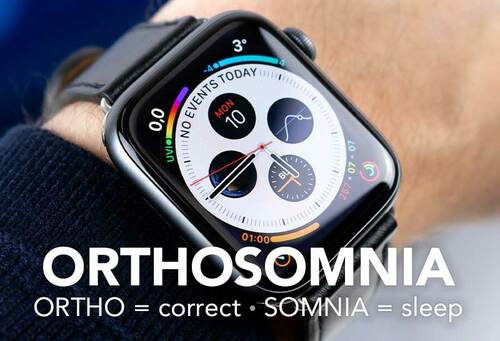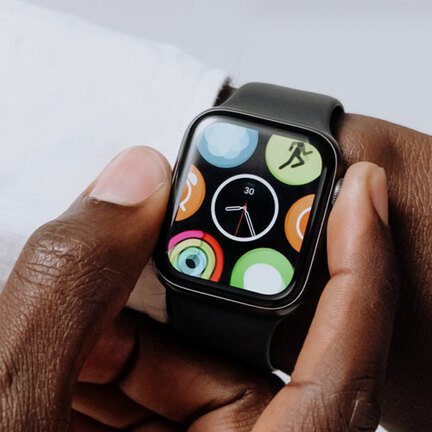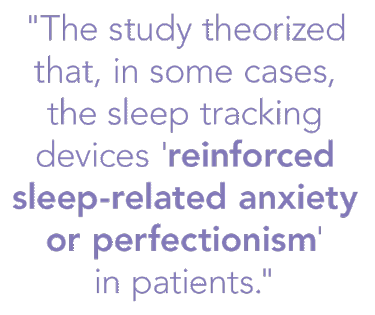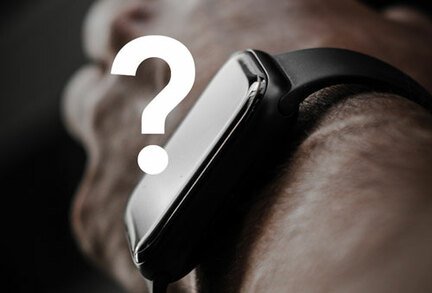Orthosomnia: Tracking Your Sleep Doesn’t Always Lead to Better Shuteye

From recording the number of steps we take to the number of calories we consume, many of us are constantly collecting data about ourselves. Because we know sleep is essential, many folks have also started tracking their “sleep number.”
Unfortunately, some people are losing sleep over, well, how much sleep they’re getting. They know that adequate rest is one of the keys to good health, and they’re determined to use a sleep tracking device (e.g., a Fitbit, Apple Watch, Nike Fuel Band, or Jawbone Up) to achieve a “perfect” night’s rest. However, sometimes this data-driven strategy for achieving better sleep doesn’t always work.
If you think you may be experiencing orthosomnia, consult a medical professional. If you’re interested in learning more about this new sleep disorder, AcousticSheep is here to explain what orthosomnia is and what the research says about it.
The following content, including, but not limited to, text, images, and videos, is for informational purposes only. This content is not intended to be a substitute for medical advice, diagnosis, or treatment. Please see your physician or other qualified healthcare professional with any questions regarding a medical condition. Call 911 immediately if you have a medical emergency.
What Is Orthosomnia?


The case study reported that ten percent of the U.S. population uses a fitness/sleep tracking device, and 50 percent would consider buying one.
Notably, the study’s authors cast doubt on whether sleep tracking devices can be reliably used to monitor sleep. They wrote, “Most consumers are unaware that the claims of these devices often outweigh the science to support them as devices to measure and improve sleep.”
There are some people who swear by tracking their sleep. However researchers note that sleep tracking devices may be creating unintended consequences with regard to how users feel about their sleep. Much like an unhealthy obsession with eating healthy food can lead to orthorexia, the study said, striving to achieve perfect sleep can lead to orthosomnia.
But Isn’t Sleep Important?
To be clear, the Journal of Clinical Sleep Medicine authors aren’t minimizing our need for sleep. They are merely positing that too much dependence on sleep tracking devices may cause unnecessary anxiety.
The researchers suggested that patients who rely too heavily on their sleep tracking devices might also be too dependent on other types of technology at night, like watching TV right before bedtime or allowing smartphone notifications to wake them up during the night.
How Much Sleep Do We Need?
Rather than relying on a specific number of hours per night of sleep, the National Sleep Foundation says, you should pay attention to how you feel in the morning. The foundation asks the following questions:
- Do you feel productive and happy with the amount of sleep you’re getting?
- Do you have health issues such as being overweight? Are you at risk for a disease?
- Do you think you have insomnia or other sleep problems?
- Do you have trouble with feeling sleepy if you drive?
These are questions that should be answered, the National Sleep Foundation suggests, before you can settle on the right number of hours of sleep for you. Remember, sleep is a very personal activity. If it turns out you need eight hours, then that’s great. If it turns out you need less, that's okay too. Determine what works for you.
Are Sleep Trackers Bad?

The key is to not fixate on a number. It’s similar to the widely-held belief that everyone should drink eight glasses of water a day. The truth is: It all depends on the person. Just as it’s important to drink when you're thirsty, you should sleep when you’re tired.
Be More Mindful and Less Meticulous
The Journal of Clinical Sleep Medicine researchers cautioned that “black-and-white or catastrophic thinking” about how much sleep we get can be counterproductive. In other words, we shouldn’t accept the idea that our whole day is ruined because our sleep tracking devices reported seven hours of sleep versus eight.
The study’s authors said medical clinicians who suspect that patients are overly-reliant on sleep tracking devices might want to ask them to make a note of how they feel during the day, both with and without their devices. This may help determine if the sleep tracking devices themselves are making patients anxious about their sleep quality.
How SleepPhones® Can Help
Listening to sleep sounds, music, white noise, or binaural beats can promote a peaceful sleeping environment and help minimize stress. The problem is, earbuds and bulky headphones can cause ear pain and don’t always stay in place all night.
AcousticSheep designed SleepPhones® for precisely this reason. Their luxuriously soft headbands and amazing sound quality are designed to help promote a great night’s sleep. If you’re interested in learning more about the features of SleepPhones®, visit our online store today.
Find how to get more done at our "Productivity" resource page.
